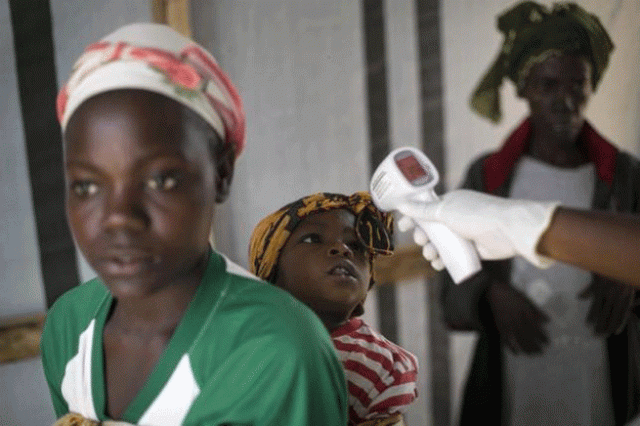Loss of health staff could increase maternal mortality in Ebola-hit countries
More than 4,000 women could die from complications during pregnancy and childbirth in Ebola-hit countries

PHOTO: REUTERS
The loss of health workers to Ebola could increase maternal mortality in Guinea by 38 percent, 74 percent in Sierra Leone and more than 100 percent in Liberia, the bank said in a report.
"The loss of health workers to Ebola could increase maternal deaths up to rates last seen in these countries 15-20 years ago," Markus Goldstein, lead economist at the World Bank, said in a statement.
Read: Saudi Arabia again denies Hajj visas to pilgrims from Ebola-hit countries
Health workers have died at a higher rate than other segments of the population group, the World Bank said.
More than 500 health care staff are among the over 11,200 people killed in West Africa by the hemorrhagic fever that continues to claim lives.
The ensuing lack of medical skills puts a further strain on already battered healthcare systems and is likley to affect mortality not related to Ebola even when the three countries are declared free from it, said the report.
The World Health Organization said on Monday that a further $696 million in donor funding is needed to rebuild health services in Guinea, Sierra Leone and Liberia over the next two years.
Read: Public health: Crackdown on substandard blood transfusions planned
The World Bank said 240 doctors, nurses and midwives would need to be hired immediately across the three countries to avoid the estimated loss of women's lives due to maternal mortality.
Overall, the three countries would need more than 43,500 health workers to meet health coverage standards required by the Millennium Development Goals, it said.
Read: Health Services: '10,000 jobs for doctors in the works'
"These countries require urgent investment in health systems starting with a substantial increase in the number of trained health workers," Tim Evans, senior director of health, nutrition and population at the World Bank, said.



















COMMENTS
Comments are moderated and generally will be posted if they are on-topic and not abusive.
For more information, please see our Comments FAQ